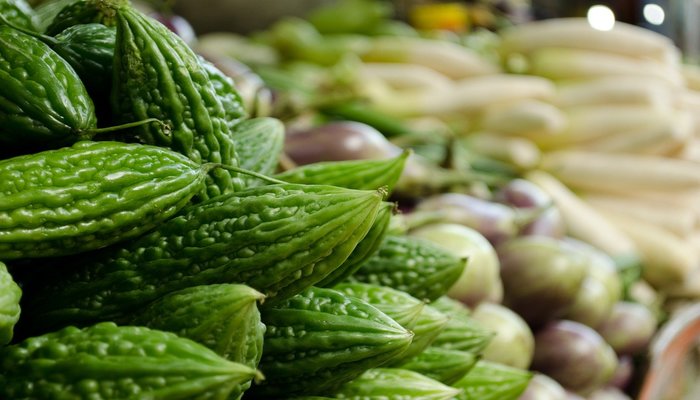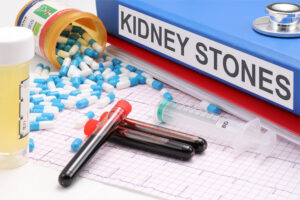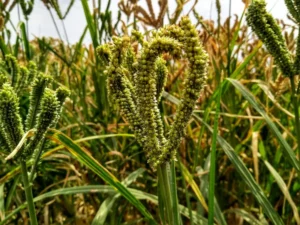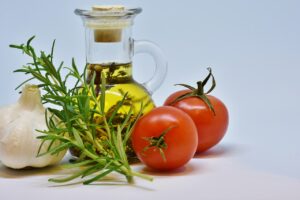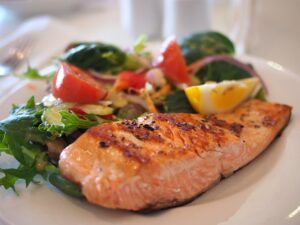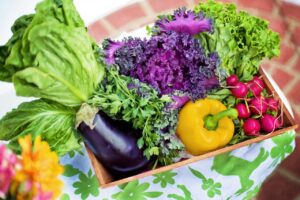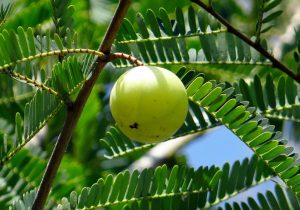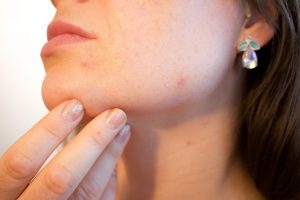Are you looking for a pregnancy diet? Even though pregnancies are one of the most joyous and rewarding experiences in a woman’s life, they may also be stressful. The mother and the baby both benefit from a healthy diet during pregnancy! Pregnancy is a period of increased nutritional requirements for your body.
Choosing a poor diet may lead to obesity, which can raise the chance of pregnancy issues. To meet the unique nutritional needs of a growing baby, expectant mothers must exercise extreme caution regarding what they consume while pregnant.
Which foods to eat during pregnancy week by week? Pregnant women and their foetuses will benefit from a diet rich in vitamins and minerals. Giving birth makes it much easier to shed pounds because of its fat-burning properties. This is why we have put together this list of diet during pregnancy. Follow this pregnancy diet chart month by month.
What Are the Foods to Take During Pregnancy?
Sweet Potatoes
There is a lot of beta-carotene in sweet potatoes, which is turned into vitamin A in the body and is necessary to form cells and tissues. The immune system and eyesight are both aided by vitamin A. Because sweet potatoes are suitable for both mother and fetus, it makes sense to consume more of them.
Salmon
Your baby’s brain and eyes benefit from omega-3 fatty acids, and Salmon is a rich supply. Additionally, it contains protein and B vitamins. On the other hand, Salmon has a lower mercury content than most other fish. Grill, broil, or include it in a salad for a tasty alternative. Low-mercury seafood, such as Salmon, may be eaten up to once a week without putting your health in jeopardy. So it should be added to your pregnancy diet plan Indian.
Beans
Fibre-rich beans are also good sources of essential minerals for pregnant women, such as iron, folic acid, calcium, and zinc. Haemoglobin, a protein that transports oxygen throughout your body, is made from iron in your body. Iron deficiency during pregnancy may lead to exhaustion, a higher risk of illness, and a smaller baby.
Juice of Orange
Vitamin C, potassium, and folate are all found in orange juice. It may help avoid birth abnormalities by providing your baby with the required nutrients. Adding orange juice to your baby’s diet can help him or her absorb more iron because of the vitamin C concentration. So, eat a glass of orange juice for breakfast every day.
Vegetables With A Lot of Leaves
Many illnesses may be prevented by eating leafy greens, such as cancer, heart disease, and diabetes. It is an ideal option of diet for pregnant women.
Eggs
Because they contain so many essential nutrients in tiny amounts, eggs are the perfect health food. More than a dozen vitamins and minerals may be found in just one big egg, roughly 80 calories per serving. The essential vitamin choline may be found in eggs. A newborn’s brain and spine grow properly when this structure is present. Thus, it’s critical for a healthy infant.
Yoghurt
Yoghurt is an excellent calcium source since it has a little greater calcium content than milk. It also promotes circulation, muscles, and the neurological system. The calcium in your bones will be decreased if you don’t eat enough calcium-rich foods.
Choose low-fat or nonfat yoghurt to reduce calories and harmful saturated fat. Yoghurt may be used in various ways, from making a morning parfait to thickening a soup.
Whole grains
Pregnant women should eat a diet rich in whole grains, high in fibre and minerals, including vitamin E, selenium, and iron. Pregnant women need more fibre than usual to maintain a healthy digestive tract. Increasing your fibre intake will help you avoid glucose intolerance, leading to gestational diabetes or diabetes that develops while you’re pregnant.
Consume more whole grains. Breakfast should be oatmeal, lunch should be brown rice, and supper should be whole wheat bread. It’s even possible to eat popcorn as a treat!
Berries
Because of the high concentration of nutrients in berries, they are a great snack or addition to a balanced diet. The water and fibre in berries make them an excellent mid-afternoon snack. In terms of taste and nutrition, they are surprisingly low in calories.
Blueberries, raspberries, goji berries, strawberries, and acai berries are some of the healthiest fruit to consume when pregnant. Check out this smoothie made with blueberries for some ideas.
Avocados
A surprising amount of neutral fatty acids is found in avocados, making them an uncommon fruit to consume. For a meal that needs a little more creaminess and depth of flavour, this makes them taste buttery and rich. Pregnant women may have leg cramps, which may be alleviated by taking potassium supplements. The potassium content of avocados is higher than that of bananas. Avocados may be used as guacamole in various ways, including in salads, smoothies, and whole wheat bread.
What are The Foods to Avoid During Pregnancy?
There are many foods that pregnant women are not allowed to consume. This may be a genuine disappointment if you are sushi, coffee, or rare-steak enthusiast.
Fortunately, you can eat more than you can’t. All you have to do is learn how to use the water’s currents to your advantage (the low mercury waters). If you want to remain healthy, you need to pay careful attention to what you put into your body.
Foods that should only be ingested on rare occasions should be restricted, while others should be avoided. Pregnant women should avoid or limit the use of the following foods and drinks. So follow this pregnancy diet menu.
Alcohol
Even though some women may believe they may safely consume modest quantities of alcohol while pregnant, this is not the case. The Centers for Disease Control and Prevention (CDC)Trusted Source notes that the umbilical cord transmits any alcohol to the fetus in the mother’s blood. This might lead to a variety of problems with physical or mental development. Pregnant women should avoid drinking alcohol, according to most experts.
Raw Or Undercooked Fish
It’s a difficult one for sushi lovers, but it’s necessary. Several illnesses may be spread by the consumption of raw fish and shellfish. Norovirus, Vibrio, Salmonella, and Listeria are all examples of viral, bacterial, or parasitic illnesses. If you are infected, dehydration and weakness may result. Other illnesses might have significant or even deadly repercussions for your kid if they are transmitted.
In pregnant women, listeria infections are more common. According to data from the CDC, pregnant women are up to ten times more likely than the general population to have Listeria. Pregnant Hispanic women have a 24 times greater risk. Pesticide-contaminated water or plants may contain this bacterium. Processing, such as smoking or drying, may infect raw fish.
Even if you don’t display any symptoms of infection, Listeria bacteria may be transmitted to your baby via the placenta. According to the Centers for Disease Control and Prevention, this may lead to preterm delivery, miscarriage, stillbirth, and other health issues. Raw fish and shellfish, especially sushi, should be avoided. Don’t worry; you’ll appreciate it much more after the kid arrives and it’s okay to eat again.
FAQs
-
Is A Banana Safe To Eat When You’re Pregnant?
Potassium-rich bananas are another excellent food option. Vitamin B6, vitamin C, and fibre are also present. Pregnancy constipation is frequent.
-
Is Milk Safe To Drink During Pregnancy?
Pregnant women should consume milk or soy milk as a source of calcium and protein. Pregnancy is a critical time for women to consume calcium since it aids in the development of the baby’s bones. If dairy products aren’t an option, you may acquire calcium from other sources, such as leafy green vegetables.
-
Is It Safe To Eat Soya During Pregnancy?
Pregnant women may include soy products in their diets. Consult your physician if you have questions about the appropriate amount of soy in your diet. Having only one or two servings a day is probably safe and may even provide additional health advantages.
Finally,
The best approach to ensure that you and your baby get all the nutrients they need is to eat a diverse and balanced diet. In many cases, it’s simpler for your body to absorb essential nutrients through food than pills.
Even the healthiest pregnancies need the help of vitamins. As a result, you should not stop taking the vitamins that your doctor has recommended.
All pregnant women must take folic acid supplements throughout the first trimester of pregnancy. Your doctor will prescribe iron and calcium supplements throughout the second and third trimesters. Your health history and dietary habits, such as whether you are a vegetarian or not, will have a role in how often you require calcium and iron supplements.
Your doctor may also advise you to take a vitamin D supplement in the pregnancy diet plan first trimester, depending on the findings of your blood tests. Vitamin D, which your body naturally obtains from exposure to sunshine, is inadequate in many Indian women, yet this mineral is critical for your body’s ability to absorb calcium. So follow all the steps we have also mentioned the importance of nutrition during pregnancy to have a healthy baby.
Also Read : Indian Keto Diet Plan: Everything You Need To Know



